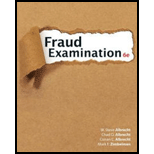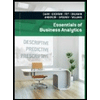
Case 11
As a new staff member in a large national company, you are excited about your career opportunities. You hope senior employees in the company will perceive you as being one of the “rising stars.” During your first week of training, you are assigned a mentor. The mentor's role is to help you learn your way around the company and to answer questions you may have about the work you are expected to complete. As it turns out, your mentor is another “rising star” whom you respect. One day, she takes you out to lunch. While you are eating, you begin discussing company policies. She explains to you the expense reimbursement policy. Company policy dictates that expenses such as lunch are the responsibility of the employee and are not reimbursable. The exception to this policy is for lunches with clients and potential recruits or for other work-related circumstances. She tells you “off the record” that nobody really follows this policy and that you can always find a “business purpose” to justify your lunch expenses with fellow employees, as long as you don't do it every day. Besides, your supervisor won't really scrutinize any expense reimbursement requests that are below $25, so why worry about it?
Is it a fraud to charge the company for personal lunches that you submit as business expenses?
What elements of fraud, if any, are present in this situation?
How would you respond to your mentor or to other employees that may encourage you to pick up the tab for lunch with the understanding that you will charge the company for the lunch?
Want to see the full answer?
Check out a sample textbook solution
Chapter 2 Solutions
Fraud Examination
- Sullivan Manufacturing uses direct labor hours in its predetermined overhead rate.arrow_forwardA company purchased equipment for $85,000 on January 1, 2024. The equipment has an estimated useful life of 8 years and a salvage value of $5,000. Calculate the annual depreciation expense using the straight-line method.arrow_forwardWhat is the book equivalent of taxable income?arrow_forward
- Can you demonstrate the accurate method for solving this financial accounting question?arrow_forwardPlease show me the valid approach to solving this financial accounting problem with correct methods.arrow_forwardNixonTech Solutions had sales of $610,000 and a cost of goods sold (COGS) of $385,000. Calculate its gross profit.arrow_forward
- Century 21 Accounting Multicolumn JournalAccountingISBN:9781337679503Author:GilbertsonPublisher:Cengage
 College Accounting (Book Only): A Career ApproachAccountingISBN:9781337280570Author:Scott, Cathy J.Publisher:South-Western College Pub
College Accounting (Book Only): A Career ApproachAccountingISBN:9781337280570Author:Scott, Cathy J.Publisher:South-Western College Pub  Essentials Of Business AnalyticsStatisticsISBN:9781285187273Author:Camm, Jeff.Publisher:Cengage Learning,Principles of Accounting Volume 2AccountingISBN:9781947172609Author:OpenStaxPublisher:OpenStax College
Essentials Of Business AnalyticsStatisticsISBN:9781285187273Author:Camm, Jeff.Publisher:Cengage Learning,Principles of Accounting Volume 2AccountingISBN:9781947172609Author:OpenStaxPublisher:OpenStax College Managerial AccountingAccountingISBN:9781337912020Author:Carl Warren, Ph.d. Cma William B. TaylerPublisher:South-Western College Pub
Managerial AccountingAccountingISBN:9781337912020Author:Carl Warren, Ph.d. Cma William B. TaylerPublisher:South-Western College Pub





